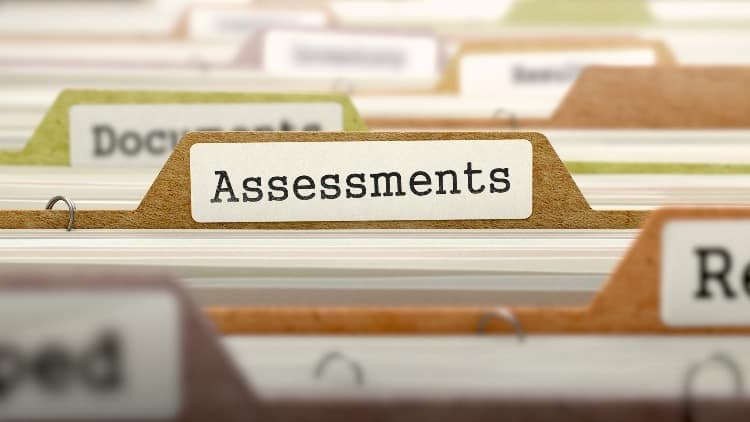 HR departments today do so much more than recruitment, training, and performance reviews.
HR departments today do so much more than recruitment, training, and performance reviews.
Now, we see the management of risk posed by technology, social media, wellbeing etc the responsibility of HR teams.
And, with more pressure on businesses than ever before and sustainability a key element for business success and growth, having the right HR practices in place to manage these risks is vital – putting a lot of emphasis on HR Management.
Now is the time to update your HR risk management function, and the good news is Bhayani Law is on hand to help.
Supporting HR managers, teams, and departments, we provide advice and guidance, working as an extension of your team to better prepare you and your business to manage internal risks effectively and efficiently.
Risk Management in HR
HR managers now need robust risk management strategies to help prevent, monitor, and manage areas of risk.
This means you must identify and assess risks, prioritise these (it’s impossible to tackle everything simultaneously), develop and implement a response strategy, and monitor ongoing risks.
Risk management techniques you can implement include:
- Avoidance
- Acceptance
- Modification
- Transferring
All of which come with pros and cons, which should be weighted against each identified risk individually.
Benefits of HR Risk Assessments
- Supports a proactive approach to HR issues
- Ensures full compliance at all times
- Improves workforce productivity
- Improves business reputation
- You can proactively manage and identify risks, keeping everything running smoothly.
Identifying and mitigating risks can positively affect your revenue, reputation, and profit margins.
HR Risk Management
The most common risks which may require HR support include:
Technology.
For all advances in digital technology have helped businesses tremendously, digital can also pose a significant business risk. As such, HR leaders now require a digital work plan to support areas such as working from home and remote working, for example.
Digital allows businesses to adapt to various situations quickly and effectively. However, you still need systems and procedures in place and processes for employees to follow to avoid security breaches, lost/stolen data, etc.
Health and Safety in the Workplace.
From lifting and carrying to providing the right and appropriate signage around a building, it is the responsibility of the HR team to mitigate the risk of accidents occurring in the workplace.
Identifying all hazards and assessing these as high, medium, and low risk with appropriate solutions you can implement.
Leadership.
In some cases, people don’t leave a company because of the job; they leave because of their boss/management. This is a very complex risk area, and HR managers must take responsibility for this area to maintain consistent levels of employee productivity.
To help mitigate or reduce this risk, HR support services could include training and educating teams, ensuring leaders have the necessary skills, making sure everyone is aware of the company’s vision and values, and you are building a culture of which you are proud. In addition, by increasing transparency, you can build trust.
Compliance.
A significant area of risk management in HR is ensuring that businesses remain compliant with all employment and working conditions legislation and guidance.
HR managers must understand all regulations, HR policies, and procedures, ensuring that regular audits take place, and you stay up to date with employment trends and changes, carrying out frequent reporting in order to avoid audits and heavy financial penalties.
Pay/Benefits.
Good pay and benefits packages are required for employee motivation and to boost productivity. However, to manage risk in this area, it’s important to keep things simple. For example, building reward programmes linked to performance, ensuring contracts and paperwork are up-to-date, and you have the right policies in place to avoid discrimination at all costs.
Employee Performance.
Keeping employees satisfied and motivated is essential to keep productivity levels high.
Evaluate your employee performance regularly. Is this comparative to other businesses in the same sector? Do the benefits reflect company culture and take into account employees’ perspectives?
Training and development.
Are you providing opportunities for employees to grow and progress? Are these routes to progression understood and clearly communicated?
By carrying out an HR risk assessment in this area, you can clearly identify the right and most appropriate training and development programmes for your organisation, encouraging learning from the top down, holding managers accountable, and incorporating training and development into performance reviews.
Recruitment and Dismissal.
Do you have a fair recruitment policy? Is there consistency in your processes and practices between departments?
By carrying out regular HR audits and creating safeguarding policies to protect employees, you can mitigate risks in this area, remaining compliant and transparent at all times.
What can HR help with?
Ultimately, it is an HR manager’s responsibility to identify risks and implement appropriate solutions to mitigate them.
A good, effective risk plan can help reduce costs and the chance of the risk occurring.
However, we understand that human resource risk management is an extensive and varied task, taking up a considerable amount of time and resources from your HR teams.
This is where we can help.
Providing you with robust and effective HR support services, our team carry out HR risk assessments on your behalf, putting in place processes and procedures that help identify risks and offer appropriate solutions to prevent these from occurring.
To find out more, call us at 0333 888 1360 or email your requirements to hello@bhanilaw.co.uk – we’d be happy to help.







